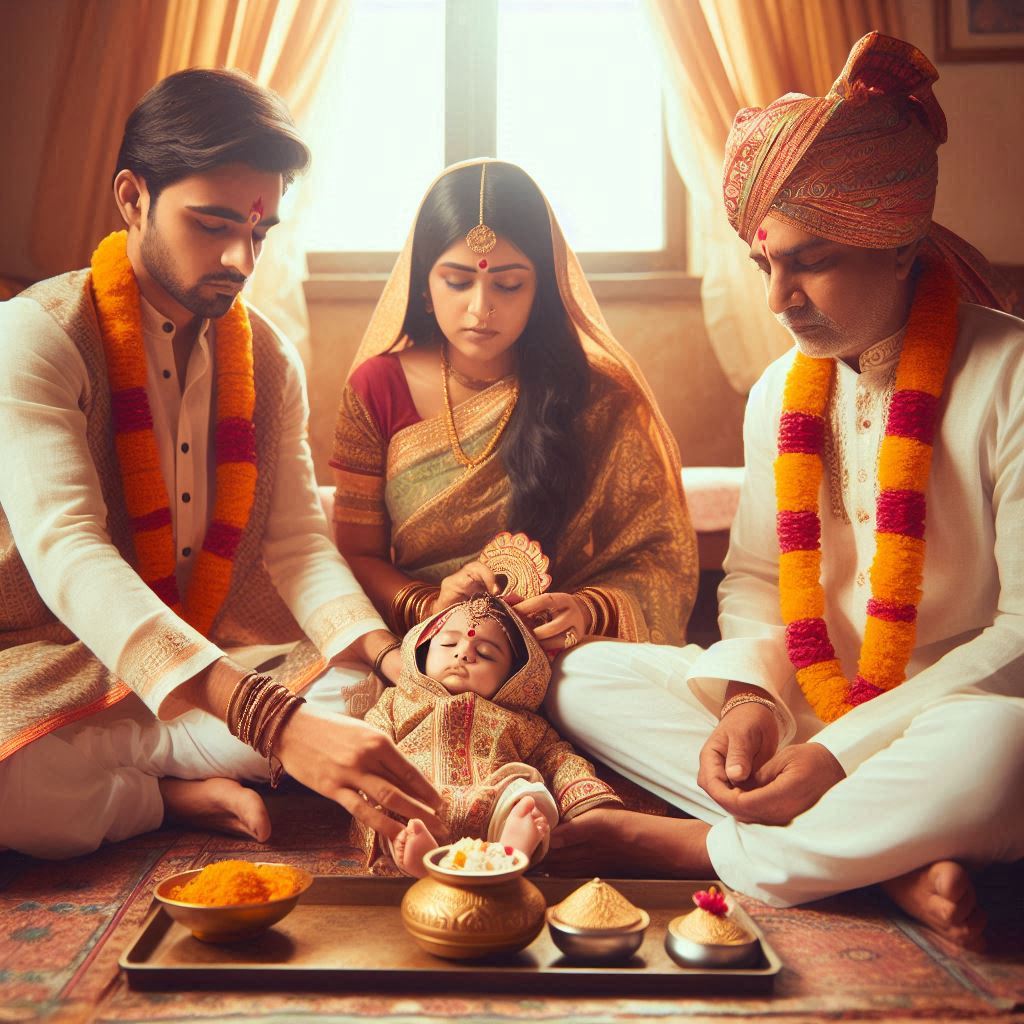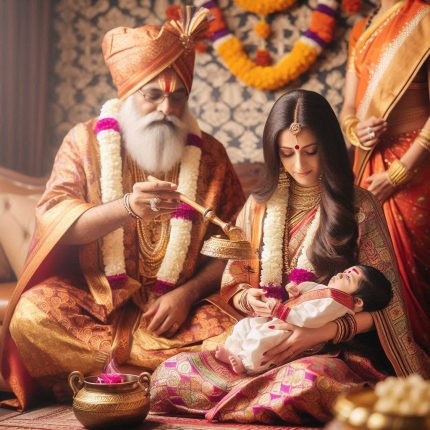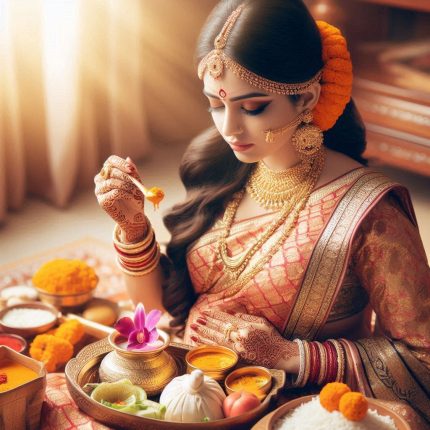Samagri
for Puja:
Haldi [organic] (20gm), Kumkum [organic] (20gm), Tulsi Mala (1), Diya Batti (5), Beetle Nuts (5), Desi Ghee (20ml), Honey (20ml), Jaggery (Gudh) (20gm), Akshata [Yellow rice] (20gm), Yagno-paveetha (5), Karpoora [camphor] (5Tabs), Red/White/Yellow Cloth(1 mtr), Prasad [Laung, Elaichi, Mishri] (20gm), Mouli (25mtr), Ganga Jal (15ml), Durva [fresh] (1), Agarbatti (6)/Dhoop (2), Dakshina (100INR), God Idols (pair), Sambrani (2), Sambrani Holder (1), Kalash [small copper] (1), Panchpatra [small copper] (1), Diya Holder (2), Panchamrit spoon (1), Karpoora Holder(1), includes perishables [Beetle Leaves [fresh] (9), Flowers [fresh] (incl mala), Tulsi [fresh], Mango Leaves [fresh] (7)]
Small Havan:
Cow Dung Cake (2), Mango Wood (250gm), HavanSamagri [20+ Grganic Herbs] (100gm), Ghee (20ml)
Yajman to provide:
Curd (100gm), Milk (100ml), Mithai (250gm), Fruits [5types], Coconut (1), HavanKund, SuchiSarva (Havan Spoon) (1), Kalash [big] (1), Bowl [preferably copper/silver] (1), Spoon [preferably copper/silver] (1), Utensils [2 big Plates (for Aarti/Samagri), disposable Plates, Bowls & Spoons], First solid food (preferably Kheer or Payasam)
Importance and Significance of Mundan Puja
The Mundan ceremony is rooted in ancient beliefs that cutting a child’s hair for the first time helps purify their spirit and remove negative energies. It is a moment for parents to express gratitude to the divine for the child’s growth and to seek blessings for a bright future. This ritual not only honours the child’s transition but also reinforces familial bonds and cultural traditions.
Benefits of Mundan Puja
- Spiritual Cleansing: The puja is believed to cleanse the child of any negativity associated with past lifetimes, promoting a fresh start.
- Invoking Divine Blessings: Participants seek blessings from deities for health, wisdom, and success in the child’s life.
- Emotional Connection: The ceremony fosters a sense of connection between the child and their family, as loved ones come together to celebrate.
- Cultural Heritage: Performing the Mundan Puja strengthens cultural identity and family traditions, passing down values to future generations.
Occasions to Perform Mundan Puja
Mundan Puja is typically performed when the child is between one and three years old, though the exact timing can vary based on family traditions and astrological considerations. Families often choose an auspicious day for the ceremony, such as during a festival or based on the child’s birth chart.
Mundan Puja Vidhi (Procedure)
- Preparation: The child is dressed in traditional attire, often with special significance for the occasion. Parents should prepare mentally and emotionally for the ritual.
- Setup: A sacred space is arranged with an altar featuring images of deities, along with offerings like flowers, sweets, and fruits.
- Invocation: The ceremony begins with the invocation of Lord Ganesha to remove obstacles and ensure a smooth puja.
- Offering Prayers: Parents offer prayers for the child’s health, happiness, and spiritual growth, seeking divine guidance for the journey ahead.
- Hair Cutting Ritual: The main event involves the actual cutting of the child’s hair, often performed by a priest or an elder family member, accompanied by prayers and chants.
- Blessings from Elders: Family members and elders present offer their blessings, sharing good wishes for the child’s future.
- Celebration: The puja is typically followed by a small celebration, including food and festivities with family and friends.
- Prasad Distribution: The ritual concludes with the distribution of prasad (blessed food), symbolizing shared blessings and community spirit.
Mundan Puja Shubh Muhurat
Choosing an auspicious time for the Mundan Puja is essential for enhancing its spiritual significance. Consulting with an astrologer can help identify the best time based on favourable planetary alignments.
By engaging in Mundan Puja, families honour their child’s growth and invoke blessings for their future. This sacred ritual not only marks an important transition in the child’s life but also fosters a sense of connection to heritage, family, and the divine.






